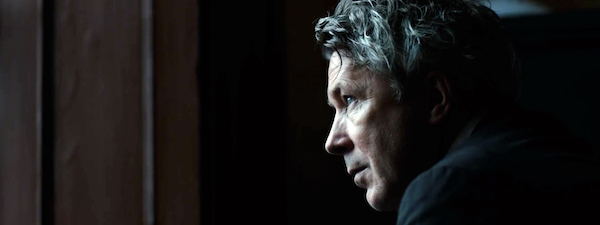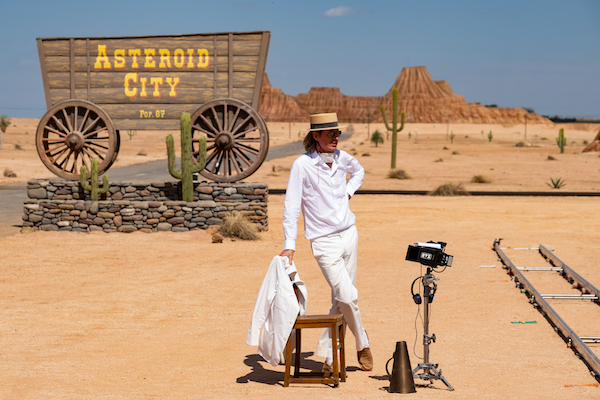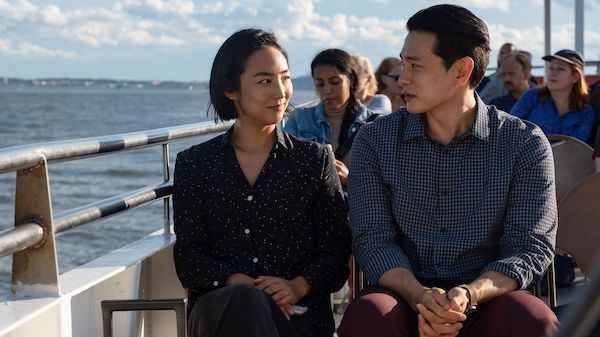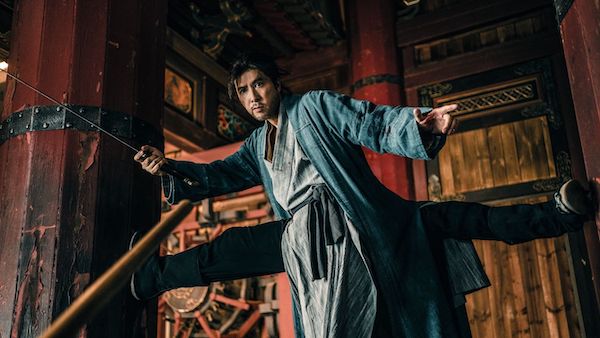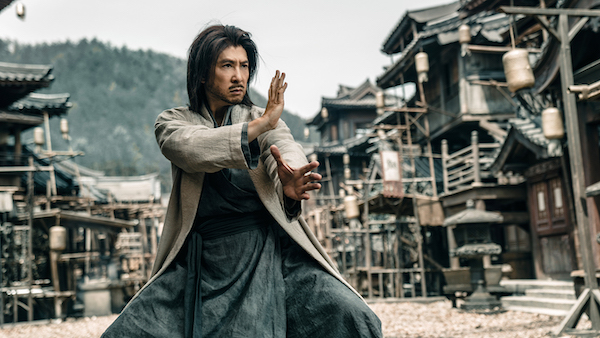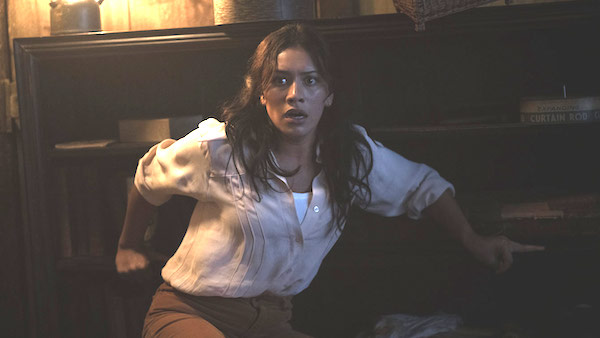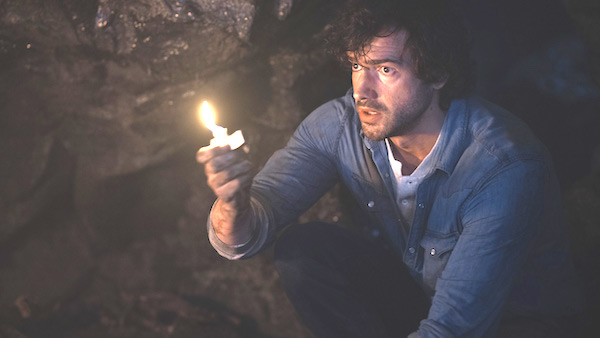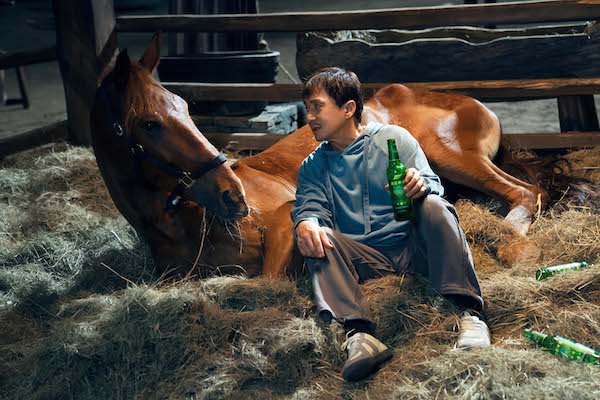
This year the Far East Film Festival celebrated its twenty-fifth year in Udine, Italy. A medieval town about an hour northeast of Venice, Udine offers theaters, shops, and an array of restaurants and cafés. It is the largest town in Friuli, part of an autonomous region known as Friuli Venezia Giulia.
Famous for its white wines and cured hams, Friuli borders Austria, Slovenia, and the Adriatic. From Alpine mountains to Adriatic lagoons, it is an area of distinctive beauty and history.
Most visitors to FEFF find their day filled with screenings, master classes, talks, concerts, and networking parties. But for those with extra time, Friuli offers a wide variety of touring possibilities.
Excellent roads, buses, and trains connect Udine with the rest of Friuli. You can visit vineyards, take a prosciutto tour, or wander through estates in nearby towns like Cividale.
This year I was fortunate enough to visit Palmanova and Aquileia, two UNESCO sites close by Udine. Either or both would be excellent destinations for tourists. The tour was arranged by OpusLoci, a project of the Chamber of Commerce of Pordenone-Udine that connects artisans, restaurateurs, hoteliers and local producers along UNESCO Heritage sites in Friuli Venezia Giulia.
About a half-hour away from Udine is Palmanova, a striking fortress town that dates back to the 16th century. Because of its strategic importance, straddling the mountains to the north and the Adriatic to the east, Friuli was occupied again and again over the years. Romans, Huns, Lombards, Franks, Venetians, Hapsburgs, and Napoleon Bonaparte all took part in ruling the area.
Designed in the shape of a nine-pointed star, Palmanova was built to defend against attacks on the Venetian Republic. Construction continued over many decades, with Bonaparte adding exterior lunettes in the early nineteenth century.
Palmanova’s unusual shape made it difficult for armies to attack. The city was additionally guarded by three double-gates (the only entryways) and a surrounding moat. The waters are largely gone, although some streams have been reintroduced. The massive gates, with their two sets of doors operated by wheels, are intact. They remain impressive, especially contrasted with the fields surrounding them.
The star shape makes driving through Palmanova a real challenge, as you often have to take a direction opposite to what you want in order to navigate the one-way streets and sharp corners.
On the other hand, it’s a wonderful town for walking. Stores and cafés are scattered along many of the streets, which lead pedestrians to a remarkable square in the center of town. Palmanova originally garrisoned as many as 5,000 soldiers at a time, but leaders built the square large enough to hold 20,000.

If you stand in the center of the square, you can see all three of the ancient gates leading to Cividale, Aquileia, and Udine. Stores and restaurants line the square, which is dominated by Duomo, completed in 1636. (Its bell tower is conspicuously low so it couldn’t be spotted by enemies outside the city walls.) Tucked away next to the Duomo is Hotel Ai Dogi, a cunningly renovated collection of buildings holding some 33 rooms. Compact but comfortable, some rooms look out onto the sun-drenched square.
The owner met us with coffee and aqua frizzante. Warm and friendly, she told us of her plans to renovate a building across the street and add another café to the hotel.
The hotel sits next to the award-winning Caffetteria Torinese, a restaurant listed in the prestigious Gambero Rosso Bar d’Italia. A glance at the menu convinced me I had to return when it was open.
Our tour guide told us that some guests stop in Palmanova while completing the Alpe Adria Cycle Route, a bike path that runs from Salzburg in Austria to Grado on the Adriatic. (The Friulian portion starts at Taraviso near the Austrian border.) If you start from the north, your route is mostly downhill. When you are done, you can take your bike on a train back to your starting point.
The Italians have worked out a superb infrastructure for bikers, with well-marked routes, staged resting areas, and restaurants and hotels geared towards bikers. Just like the rifugios that dot mountain trails, the bike paths were designed for comfort as well as exercise.
History buffs have a lot to explore in Palmanova. Museums, barracks, and tunnels show how the city evolved. On weekends it’s possible to walk through the Rivellino tunnels underneath the city’s walls. You can purchase tickets at the entrance to the gallery or at an Infopoint off the central square. Audioguides are also available.
QR codes can be found at key spots throughout the town to aid visitors. Scan the codes at the ramparts, and you can experience a 360-degree VR video through time. A different QR code will take you on a tour of the entire fortress, including the Duomo cathedral, the three city gates, a Napoleonic lunette outside the walls, and a Venetian aqueduct restored in 2015.
If you plan to visit, be aware that Palmanova hosts a UNESCO Cities Marathon in March, a comics and movie festival in June, historical reenactments in September, and Christmas events throughout December.

Not too many miles further towards the Adriatic you find Aquileia, another UNESCO site. It’s a small town of about 2,000, but it packs a powerful historical punch. Established by the Romans by 181 B.C. as a garrison for some 3000 foot soldiers, it was intended to be a storage and transportation hub with easy access to the nearby Adriatic. Local farmers supplied wine and grain. (An indigenous settlement predates the city.)
Estates, workshops, cemeteries, and a forum are scattered throughout the area, some still in the process of restoration. Our focus on this trip was one of the most important churches in early Christianity, the Basilica of Aquileia.

Built over the remains of a fourth-century church, the Basilica was enlarged in the 11th and 13th centuries. Its central floor is covered in mosaics, an art form perfected over the centuries by Aquileia artisans. At over 8000 square feet, it is the largest mosaic floor in western Christianity.
Biblical scenes like Jonah in the whale are depicted, as are a wealth of fish and fowl. Geometric patterns symbolize fundamental Christian beliefs. It is a remarkable achievement that becomes even more astonishing as you make your way further into the church.

Ninth-century frescoes in a crypt under the main altar of the basilica detail the story of St. Mark the Evangelist, including the beheading of his followers Fortunatus and Hermagoras. After this we entered a crypt where even earlier mosaics are being excavated. And it turns out that more mosaics are being discovered throughout the town.

After our tour we emerged from ancient Roman times into a blindingly bright present. A block or two away from the church we found Vini Donda, a comfortable restaurant spread over several rooms. Local wines and liqueurs line the walls. The attentive staff makes you feel as if you are the only guests.
We had what was called a “light lunch,” starting with a plate of fresh, herbed croccante, thinly sliced and fried. Asparagus with a creamy egg sauce was followed by ravioli stuffed with local bruscandoli and served with a butter sage sauce. Strawberry tiramisu with a golden custard topped off the meal.

On the ride back to Udine, we passed small hamlets surrounded by fields and vineyards, snowcapped mountains in the distance. The sense of traveling through time, of experiencing so many cultures, was both dizzying and rewarding.
What remain with me are startlingly blue skies, endless horizons, the comfortable cafes with their smiling customers, and a sense of serenity that is hard to find in modern times. You not only feel connected to the past, you begin to understand what life was like for those who came before.
Photos: 1) Aquileia Gate entering Palmanova; 2) the Duomo, or cathedral, off the Parade Ground; 3) Basilica at Aquileia; 4) interior of the Basilica; 5) fresco in Basilica crypt of Fortunatus and Hermagoras; 6) mosaic depicting a basket of snails; 7) fresh croccante at Vini Donda. All rights reserved.
Links — https://www.opusloci.it/en/ : a wealth of information on history, artisinal goods, cuisine, and hospitality for Palmanova, Aquileia, and other Friulian sites. https://www.turismofvg.it/en : How to plan your visit to Friuli Venezia Giulia, with guides for biking, boating, mountaineering, culture, and cuisine. https://www.visitpalmanova.it/en/home-english/ : maps, guides, and photos for visiting Palmanova. https://www.fondazioneaquileia.it/en : The official website for Aquileia.


